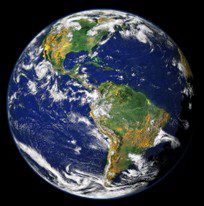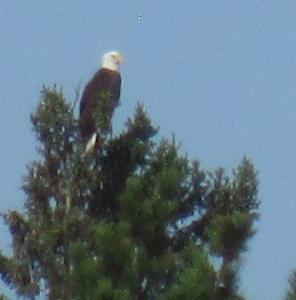Let’s start at the very beginning. A very good place to start … The next chapter in Douglas and Jonathan Moo’ recent book Creation Care: A Biblical Theology of the Natural World looks at Genesis 1 and a few other chapters that highlight creation. Jonathan begins with encouragement to read Genesis 1 through a couple of times and let it flow without dissection and study.
 In the beginning the earth was formless and void or empty. The story is unabashedly earth-centered. The earth, after all, was the center of the universe in ancient cosmologies and is the center of human existence. Everything revolves around the earth – in particular, rises and sets over the flat earth of local human perception.
In the beginning the earth was formless and void or empty. The story is unabashedly earth-centered. The earth, after all, was the center of the universe in ancient cosmologies and is the center of human existence. Everything revolves around the earth – in particular, rises and sets over the flat earth of local human perception.
As many have noticed and commented on, the account of creation is ordered in two halves. As the Moos put it: “In the first three days, God creates and separates to form differentiated spaces where there would otherwise only be formlessness … in the second three days, God fills the spaces he has formed, where otherwise there would only be emptiness.” (pp. 48-49)
The take-home message for the ancient Israelites and for us is largely the same. One God is sovereign over all. He alone created the earth (and all else). He created it intentionally and for a purpose. And it was good.
This carefully constructed narrative highlights the orderedness and comprehensiveness of God’s creative activity. The entire cosmos is shaped and organized according to God’s purpose and filled with abundance – sun, moon, stars, birds, fish, and animals of all kinds. (p. 49)
The original audience would also note that the heavenly bodies are not deities. For us, perhaps, the message is that our lives are not determined by the stars. They are nothing more than God’s creation.
 Psalm 104 and Job 38-39 provide important insights into God’s good creation. Although Genesis 1 assigns green plants for food, these other passages note that God provides prey for the lions (The lions roar for their prey and seek their food from God. (Ps 104:21)). By extension other carnivores and scavengers also receive their sustenance from God. Even Leviathan, a chaos creature of the deep, was formed to frolic in God’s good creation. (Ps 104:26) All of God’s creation is good and formed according to his purposes.
Psalm 104 and Job 38-39 provide important insights into God’s good creation. Although Genesis 1 assigns green plants for food, these other passages note that God provides prey for the lions (The lions roar for their prey and seek their food from God. (Ps 104:21)). By extension other carnivores and scavengers also receive their sustenance from God. Even Leviathan, a chaos creature of the deep, was formed to frolic in God’s good creation. (Ps 104:26) All of God’s creation is good and formed according to his purposes.
How many are your works, Lord! In wisdom you made them all; the earth is full of your creatures. (Ps 104:24) Here … “We are encouraged to celebrate the diversity of life God made, seeing all of it as testifying to his wisdom and glory and recognizing that other creatures belong not to us but to God himself.” (p. 57)
Although humans have a special role in God’s creation, there is no indication that the cosmos and all that is in it was created only for human benefit. As we look on the abundance of God’s creation, we see his glory and are reminded of our human limitations. As in God’s speeches to Job, we are reminded that we are not God and do not comprehend the fullness of his power or purposes.
Doug and Jonathan point out that in the two instances in Acts where preaching is directed at Greeks with no apparent knowledge of the Hebrew Scriptures, Paul turns to creation as a means of connection.
[I]n his well-known Areopagus speech in Athens, Paul, after observing the Athenian’s worship of an unknown god, begins with a description of God’s action in creation. This is the God who “made the world and everything in it” and who reigns over it as Lord (Acts 17:4), who is not far from anyone and desires that they reach out and find him (v. 27). Paul moves on to call the Athenians to repentance, to turn from their worship of idols to the true God, the Creator and judge of all, who has now definitively revealed himself in the resurrection of Jesus Christ (v. 31). (p. 59)
In a less obvious, but more striking passage Paul and Barnabas responded to the people in Lystra, in fact they rushed out shouting:
“Friends, why are you doing this? We too are only human, like you. We are bringing you good news, telling you to turn from these worthless things to the living God, who made the heavens and the earth and the sea and everything in them. In the past, he let all nations go their own way. Yet he has not left himself without testimony: He has shown kindness by giving you rain from heaven and crops in their seasons; he provides you with plenty of food and fills your hearts with joy.” (Acts 14:15-17)
God reveals himself in his good (but not ‘perfect’ or finally completed) creation.
Are there other passages that emphasize the value of all creation to God?
How does creation (human and non-human, animate and inanimate) praise and worship God?
Let the sea resound, and everything in it,
the world, and all who live in it.
Let the rivers clap their hands,
let the mountains sing together for joy;
let them sing before the Lord,
for he comes to judge the earth.
He will judge the world in righteousness
and the peoples with equity. (Ps 98: 7-9)
If you wish to contact me directly you may do so at rjs4mail[at]att.net.
If interested you can subscribe to a full text feed of my posts at Musings on Science and Theology.
As an aside – the episodes on the DVD track nicely with the chapters in the book, but the titles in the menu do not. The material in episode two tracks with chapter three (the material discussed in this post), but the title is that of chapter two; the material in episode three tracks with chapter four – but the title “A Beautiful World” is that of chapter three that we looked at today.











